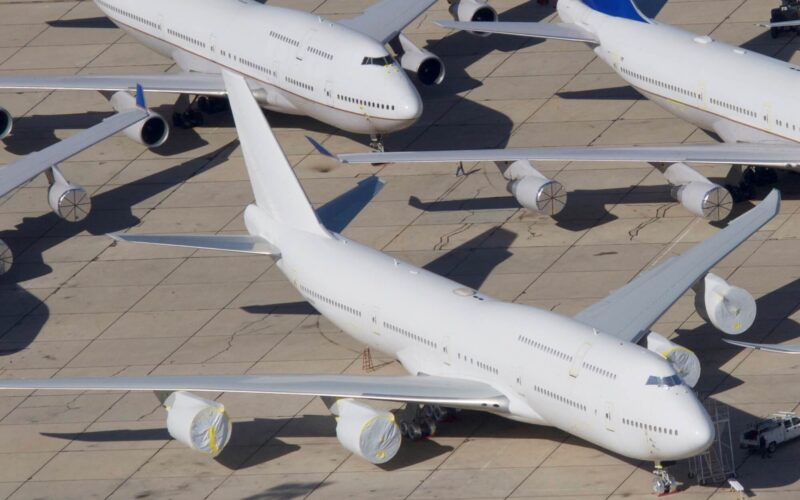The Biden administration has reportedly scrapped former president Donald Trump’s livery design for the next Air Force One aircraft.
The new livery for the next U.S. presidential plane, commonly known as Air Force One, was approved in February 2020. It had been expected that the two VC-25B aircraft would trade the sky blue and white color scheme in favor of a red, white, and dark blue paint job.
But the White House has since ditched plans for the new paint scheme, Politico reported on June 10, 2022, citing an anonymous administration official. “The Trump paint scheme is not being considered because it could drive additional engineering, time and cost,” the source told Politico.
The darker paint scheme also sparked safety concerns in the US Air Force. “Analysis concluded darker colors, among other factors, on the underside of the VC-25B aircraft might contribute to temperatures exceeding the current qualification limits of a small number of components on the aircraft,” USAF spokesperson Ann Stefanek told Defense News.
The project has drawn criticism since its was first announced by Trump himself back in 2017. In June 2019, lawmakers of the House’s Subcommittee on Seapower and Projection Forces drafted legislation to keep the colors that have adorned the presidential plane since President John F. Kennedy’s administration.
Yet on February 10, 2020, a budget report from the Pentagon confirmed next next Air Force One would adopt the proposed new livery.
While it is unclear which livery will now be adopted instead, Boeing had previously submitted a study, titled ‘‘Phase II Aircraft Livery and Paint Study Final Report”, to the Federal Government in 2017.
In July 2018, Boeing received a $3.9 billion contract to convert two 747-8s, initially intended for the defunct Russian airline Transaero, to Air Force One standards with a delivery set for December 2024.
However, in June 2021, Boeing warned the VC-25Bs are likely to be delivered a year behind scheduled. The manufacturer reported $660 million in cost overruns on the two aircraft in the first quarter of 2022.

